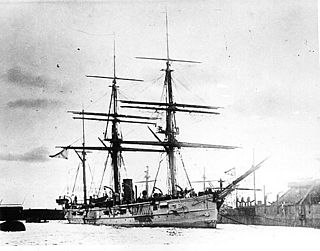The arguments for the plaintiff, Mrs Cutter, went as follows.
The plaintiff is entitled to recover a proportionable part of the wages on a quantum meruit for work and labour done by the intestate during that part of the voyage that he lived and served the defendant; as in the ordinary case of a contract of hiring for a year, if the servant die during the year, his representatives are entitled to a proportionable part of his wages. If any defence can be set up against the present claim, it must arise either from some known general rule of law respecting marine service, or from the particular terms of the contract between these parties. But there is no such rule applicable to marine service in general as will prevent the plaintiff's recovering, neither will it be found, on consideration, that there is any thing in the terms of this contract to defeat the present claim. It is indeed a general rule that freight is the mother of wages; and therefore if the voyage be not performed, and the owners receive no freight, the sailors lose their wages; though that has some exceptions where the voyage is lost by the fault of the owners, as if the ship be seized for a debt of the owners, or on account of having contraband goods on board; in either of which cases the sailors are entitled to their wages though the voyage be not performed. Vin. Abr. “Mariners,” 235. But here the rule itself does not apply, the voyage having been performed, and the owners having earned their freight. There is also another general rule, that if a sailor desert, he shall lose his wages: but that is founded upon public policy, and was introduced as a mean of preserving the ship. But that rule cannot apply to this case; for there the sailor forfeits his wages by his own wrongful act, whereas here the canon was prevented completing his contract by the act of God.
So if a mariner be impressed, he does not forfeit his wages; for in Wiggins v Ingleton [1] Lord Holt held that a seaman, who was impressed before the ship returned to the port of delivery, might recover wages pro tanto . Neither is there any thing in the terms of this contract to prevent the plaintiff's recovering on a quantum meruit . The note is a security, and not an agreement; it is in the form of a promissory note, and was given by the master of the ship to the intestate to secure the payment of a gross sum of money, on condition that the intestate should be able to, and should actually, perform a given duty. The condition was inserted to prevent the desertion of the intestate, and to ensure his good conduct during the voyage. And in cases of this kind, the contract is to be construed liberally.
In Edwards v Child , [2] where the mariners had given bonds to the East India Company not to demand their wages unless the ship returned to the port of London, it was held that as the ship had sailed to India and had there delivered her outward bound cargo, the mariners were entitled to their wages on the outward bound voyage, though the ship was taken on her return to England. This note cannot be construed literally, for then the intestate would not have been entitled to any thing though he had lived and continued on board during the whole voyage, if he had been disabled by sickness from performing his duty. But even if this is to be considered as a contract between the parties, and the words of it are to be construed strictly, still the plaintiff is entitled to recover on a quantum meruit , because that contract does not apply to this case. The note was given for a specific sum to be paid in a given event; but that event has not happened, and the action is not brought on the note. The parties provided for one particular case: but there was no express contract for the case that has happened; and therefore the plaintiff may resort to an undertaking which the law implies, on a quantum meruit for work and labour done by the intestate. For though, as the condition in the note, which may be taken to be a condition precedent, was not complied with, the plaintiff cannot recover the sum which was to have been paid if the condition had been performed by the intestate, there is no reason why the representative of the seaman, who performed certain services for the defendant, should not recover something for the work and labour of the intestate in a case to which the express contract does not apply.
Arguments on behalf of the defendant.
Nothing can be more clearly established than that where there is an express contract between the parties, they cannot resort to an implied one. It is only because the parties have not expressed what their agreement was that the law implies what they would have agreed to do had they entered into a precise treaty: but when once they have expressed what their agreement was, the law will not imply any agreement at all. In this case the intestate and the defendant reduced their agreement into writing, by the terms of which they must now be bound: this is an entire and indivisible contract; the defendant engaged to pay a certain sum of money, provided the intestate continued to perform his duty during the whole voyage; that proviso is a condition precedent to the intestate or his representative claiming the money from the defendant, and that condition not having been performed, the plaintiff cannot now recover any thing. If the parties had entered into no agreement and the intestate had chosen to trust to the wages that he would have earned and might have recovered on a quantum meruit, he would only have been entitled to 8l.; instead of which he expressly stipulated that he should receive thirty guineas if he continued to perform his duty for the whole voyage. He preferred taking the chance of earning a large sum in the event of his continuing on board during the whole voyage to receiving a certain, but smaller, rate of wages for the time he should actually serve on board; and having made that election, his representative must be bound by it.
In the common case of service, if a servant who is hired for a year die in the middle of it, his executor may recover part of his wages in proportion to the time of service: [3] but if the servant agreed to receive a larger sum than the ordinary rate of wages on the express condition of his serving the whole year, his executor would not be entitled to any part of such wages in the event of the servant dying before the expiration of the year. The title to marine wages by no means depends on the owners being entitled to freight; for if the sailors desert, or do not perform their duty, they are not entitled to wages though the owner earn the freight. Nor is it conclusive against the defendant that the intestate was prevented fulfilling his contract by the act of God; for the same reason would apply to the loss of a ship, which may equally happen by the act of God, and without any default in the sailors; and yet in that case the sailors lose their wages. But there are other cases that bear equally hard upon contracting parties; and in which an innocent person must suffer if the terms of his contract require it; e.g. the tenant of a house who covenants to pay rent and who is bound to continue paying the rent, though the house be burned down. [4]
- Lord Kenyon Ch.J
- But that must be taken with some qualification; for where an action was brought for rent after the house was burned down, and the tenant applied to the Court of Chancery for an injunction, Lord C. Northington said that if the tenant would give up his lease, he should not be bound to pay the rent. [5]
With regard to the case cited from 2 Lord Raym.; the case of a mariner impressed is an excepted case, and the reason of that decision was founded on principles of public policy.











